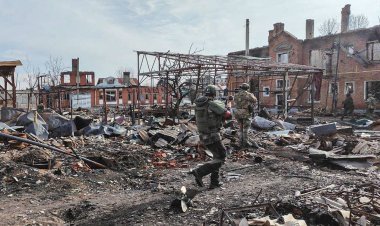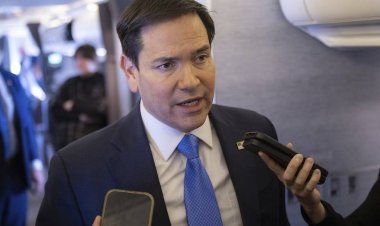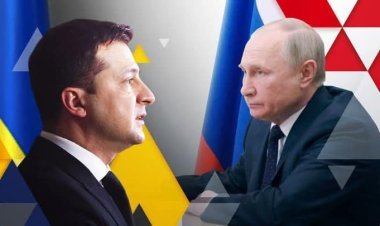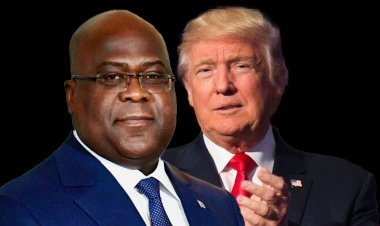Trump's Plan to Coerce Russia and Ukraine into Peace Talks._ISHEJA
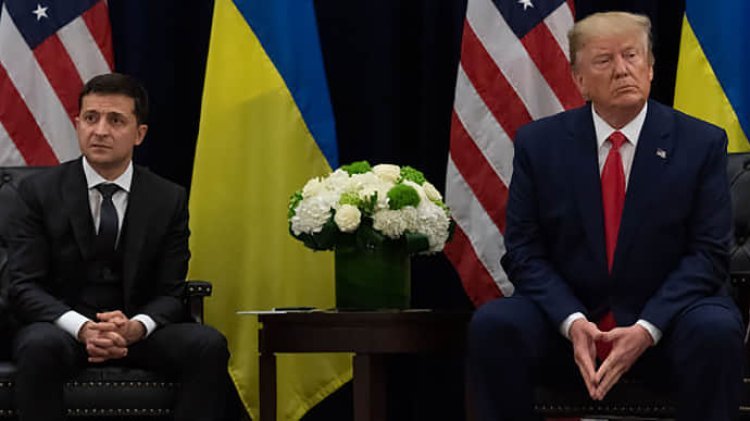
Strategy to Coerce Russia and Ukraine
Donald Trump, if elected as the President in November 2024, has contemplated using various strategies to exert pressure on Russia and Ukraine in order to resume peace negotiations. Trump's policy advisers have engaged in discussions about these strategies at the beginning of a new presidential term.
One potential tactic that has been discussed is the possibility of halting American military assistance to Ukraine as a means to force them to re-engage in negotiations. This approach aims to use the threat of withholding aid as leverage to encourage Ukraine's participation in peace talks.
Conversely, Trump's advisers have also considered the idea of increasing US support for Ukraine as a means to coerce Russia into engaging in negotiations. This could involve imposing stricter sanctions on the Russian Central Bank, targeting the financial sector in an effort to influence President Putin's decisions regarding the ongoing war.
Several of Trump's advisers, including Larry Kudlow and Robert O'Brien, have publicly advocated for the imposition of stricter sanctions on Russia. These advisers believe that putting more pressure on the Russian Central Bank would be an effective way to influence Putin and potentially bring about a resolution to the conflict.
It's important to note that currently, there have been no direct negotiations between Trump's team and representatives from Russia and Ukraine. This is because private organizations are prohibited by US law from negotiating on behalf of the government at such levels.
However, the discussions among Trump's allies signify a potential shift in US foreign policy towards a more coercive approach in dealing with the Ukraine-Russia conflict.
Proposed Two-Tier NATO Approach
Another topic that has garnered attention in discussions surrounding Trump's potential presidency is the concept of a "two-tier NATO." This approach would condition the future application of Article 5 of the North Atlantic Treaty on countries meeting the current two percent defense spending targets.
Advocates for this concept argue that it would incentivize NATO members to increase their defense spending, ensuring a more equitable distribution of the financial burden within the alliance. By making the application of Article 5 contingent upon meeting defense spending targets, Trump's administration aims to address what they perceive as disproportionate contributions by the United States to NATO.
If implemented, this proposed two-tier system would represent a significant departure from decades of US foreign policy and potentially lead to a division within the Alliance. NATO has historically played a crucial role in European security since the Cold War era, and any changes to its structure could have far-reaching implications for transatlantic relations.
Trump's Views on Ukraine and Russia
Trump's previous remarks have provided insight into his perspective on the Ukraine-Russia conflict. In a June 2023 interview with Reuters, Trump suggested that Ukraine might need to cede some territory to Russia in order to end the war. This statement contrasts with the stance of Ukrainian authorities, who maintain that the withdrawal of Russian troops from the entire territory of Ukraine is a prerequisite for a peaceful resolution.
The divergence in views between Trump and Ukrainian authorities highlights a potential challenge in reaching a mutually acceptable solution to the conflict. It is unclear how Trump's position on territorial concessions would factor into his approach to peace negotiations if he were to be reelected.
Trump's dissatisfaction with NATO contributions has been a recurring theme throughout his presidency and election campaigns. He has frequently expressed discontent over what he perceives as disproportionate financial obligations shouldered by the United States within the alliance. In a recent election rally in South Carolina, Trump even hinted at using Russian aggression as leverage against NATO members who fail to meet their financial obligations.
Reactions and Criticisms
Trump's statements and proposed strategies have drawn both domestic and international reactions. Current President Joe Biden criticized Trump's remarks as "shameful" and "anti-American". Biden emphasized the importance of maintaining strong alliances and working with NATO partners to address global challenges.
On the other hand, Russian President Vladimir Putin expressed a preference for a "predictable" Biden over an "erratic" Trump as the President of the United States. Putin's statement suggests that he might perceive Trump's potential coercive approach as unpredictable and potentially disruptive to the existing dynamics between Russia and the United States.
In conclusion, if Donald Trump secures victory in the 2024 presidential election, he has expressed a desire to exert pressure on Russia and Ukraine to resume peace negotiations. Strategies discussed by his policy advisers include potential coercion tactics such as halting military assistance and imposing stricter sanctions.
Additionally, there is advocacy for a two-tier NATO approach, which would condition the application of Article 5 on defense spending targets. Trump's views on territorial concessions and his recurring discontent with NATO contributions have also shaped his approach to this issue. The reactions and criticisms to these proposals highlight the potential implications of such strategies on global alliances and the Ukraine-Russia conflict.









